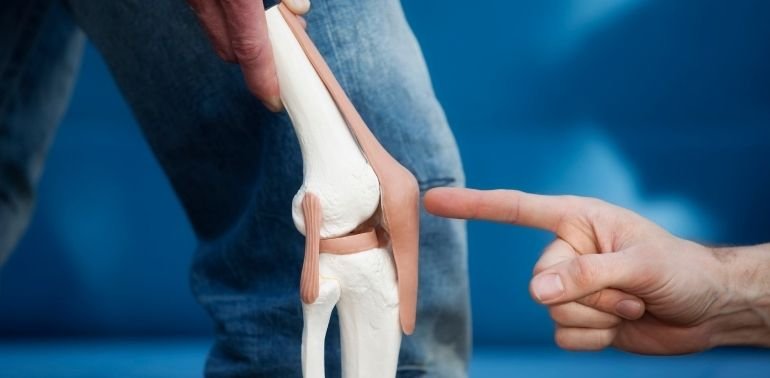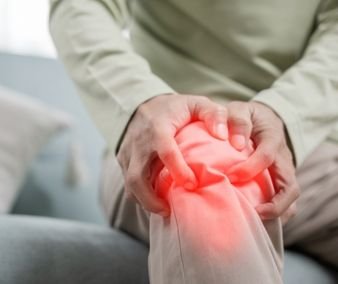
Looking for effective treatment for joint pain and stiffness in Milton? You’re not alone. Many individuals experience joint discomfort due to injury, arthritis, overuse, or the natural aging process. These issues can limit mobility, cause daily discomfort, and reduce your overall quality of life.
At Tonic Physio, our treatment for joint pain and stiffness is designed to relieve inflammation, restore flexibility, and improve joint function. Whether you’re dealing with localized pain or stiffness throughout the body, our physiotherapy-led approach combines manual therapy, personalized exercise programs, and evidence-based techniques to help you move better and feel stronger.
Regain control of your movement by booking your joint pain and stiffness treatment in Milton today.
Treatment for joint pain and stiffness varies depending on the severity and cause of the condition. Common treatments include:

Aching joint pain can be a significant hindrance to daily activities. This discomfort may occur in various joints, such as the knees, hips, shoulders, or wrists, often making even simple tasks difficult. Understanding the underlying cause of the pain is essential in choosing the appropriate treatment method.
To manage aching joint pain, a combination of therapeutic approaches such as gentle exercises, anti-inflammatory treatments, and physiotherapy can be highly effective. In addition, maintaining a healthy weight and proper posture can reduce stress on the joints and prevent exacerbation of pain.
For those experiencing joint pain and stiffness all over the body, it’s crucial to understand that this widespread discomfort may be related to systemic conditions like rheumatoid arthritis, fibromyalgia, or osteoarthritis. These conditions can affect multiple joints and cause chronic pain.
A comprehensive treatment plan that incorporates physiotherapy, lifestyle adjustments, and sometimes medications is often necessary to manage widespread joint issues. Early intervention and consistent care can prevent the progression of these conditions and restore mobility.
Joint pain and stiffness are commonly caused by conditions that affect the cartilage, ligaments, and bones surrounding a joint. Some of the most frequent culprits include osteoarthritis, rheumatoid arthritis, joint inflammation, repetitive strain, injuries, or simply the natural aging process. With age or repetitive use, the soft tissue that separates your bones can begin to deteriorate, which often results in joint discomfort and limited flexibility.
Managing joint pain successfully typically requires a blend of targeted physiotherapy, healthy lifestyle changes, and, when necessary, professional medical care. Mild discomfort can often be managed with heat or cold therapy, gentle stretching, or anti-inflammatory medications. For chronic or recurring pain, professional physiotherapy offers tailored exercise programs that improve joint function and enhance mobility. Advanced options may include manual therapy, therapeutic ultrasound, or acupuncture. Maintaining a healthy weight, staying active, and following a joint-friendly diet can also support long-term relief.
Yes, joint stiffness can often be reduced or even reversed, particularly when addressed early. A consistent routine of mobility exercises, stretching, and range-of-motion training can help restore flexibility. Physiotherapists often recommend techniques like myofascial release, joint mobilizations, and low-impact exercise such as swimming or yoga to improve circulation and joint lubrication. While degenerative conditions like arthritis may require ongoing management, the symptoms can be minimized significantly with the right care plan.
The best exercises for stiff joints are low-impact movements that focus on improving flexibility, reducing stiffness, and strengthening surrounding muscles. These include water aerobics, walking, stationary cycling, and gentle yoga poses. Specific stretches like shoulder rolls, ankle circles, and wrist flexes can help enhance joint range. A licensed physiotherapist can design a safe and personalized routine to support recovery, prevent re-injury, and promote long-term joint health.
You should seek professional help when joint pain becomes persistent, disrupts your daily routine, or worsens over time. Warning signs include joint swelling, redness, warmth, or sudden loss of movement. If the pain is accompanied by fever, fatigue, or unexplained weight loss, it could signal an underlying health issue. Consulting a healthcare provider or a qualified physiotherapist early on can lead to accurate diagnosis and faster recovery, preventing long-term damage.
Our therapists are trained and certified in therapy technique
Personalized Treatment I'll book a meeting so we can solution this before the sprint